In Pictures: Community kitchen at Dhobi Ghat offers hope, succor to displaced people
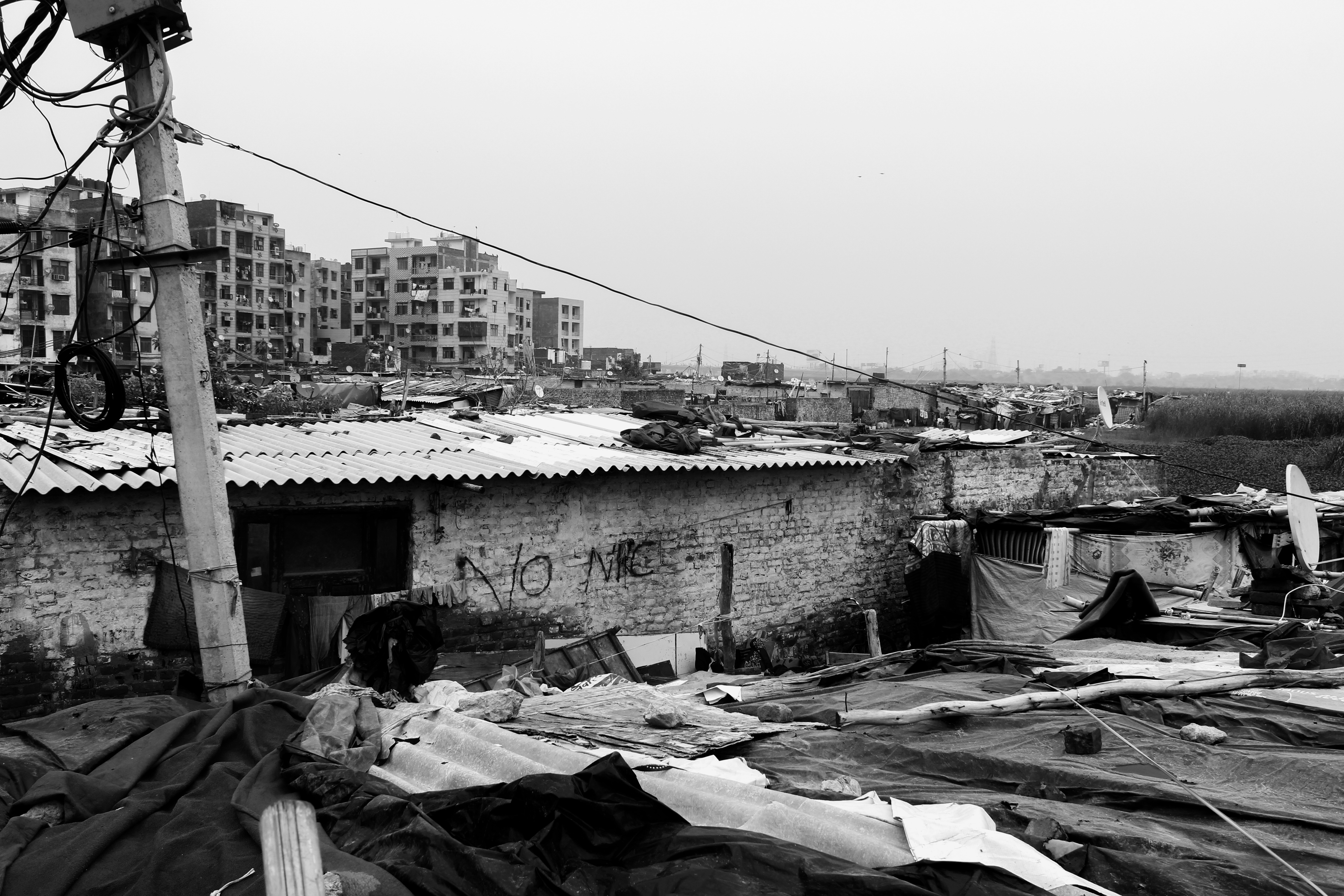
Following the Dhobi Ghat Pathshala, the women-led Dhobi Ghat Jhuggi Adhikar Manch established the Dhobi Ghat Community Kitchen with the help of the All India Students' Association, the All India Central Council of Trade Unions, and the Revolutionary Youth Association. The photo essay portrays the efforts by community towards building hope for the affected displaced people.
Shadab Farooq | TwoCircles.net
NEW DELHI - It's Wednesday, July 14th, and it's pouring fiercely in Delhi. However, despite the rain, the Dhobi Ghat Kitchen begins cooking the day's meal.
Following the Dhobi Ghat Pathshala, the women-led Dhobi Ghat Jhuggi Adhikar Manch established the Dhobi Ghat Community Kitchen with the help of the All India Students' Association, the All India Central Council of Trade Unions, and the Revolutionary Youth Association.
Due to a lack of space, food for the Dhobi Ghat residents is prepared in a rented location about five minutes away from the Ghat in Okhla, New Delhi.
Every day, while cooking the meals, a long debate about current issues begins, according to Arbab, a student volunteer. "We discuss a lot about local concerns and national politics, offering a forum for greater communication," Himanshu, 23, one of the volunteers told TwoCircles.net.
[caption id="attachment_443312" align="aligncenter" width="2560"]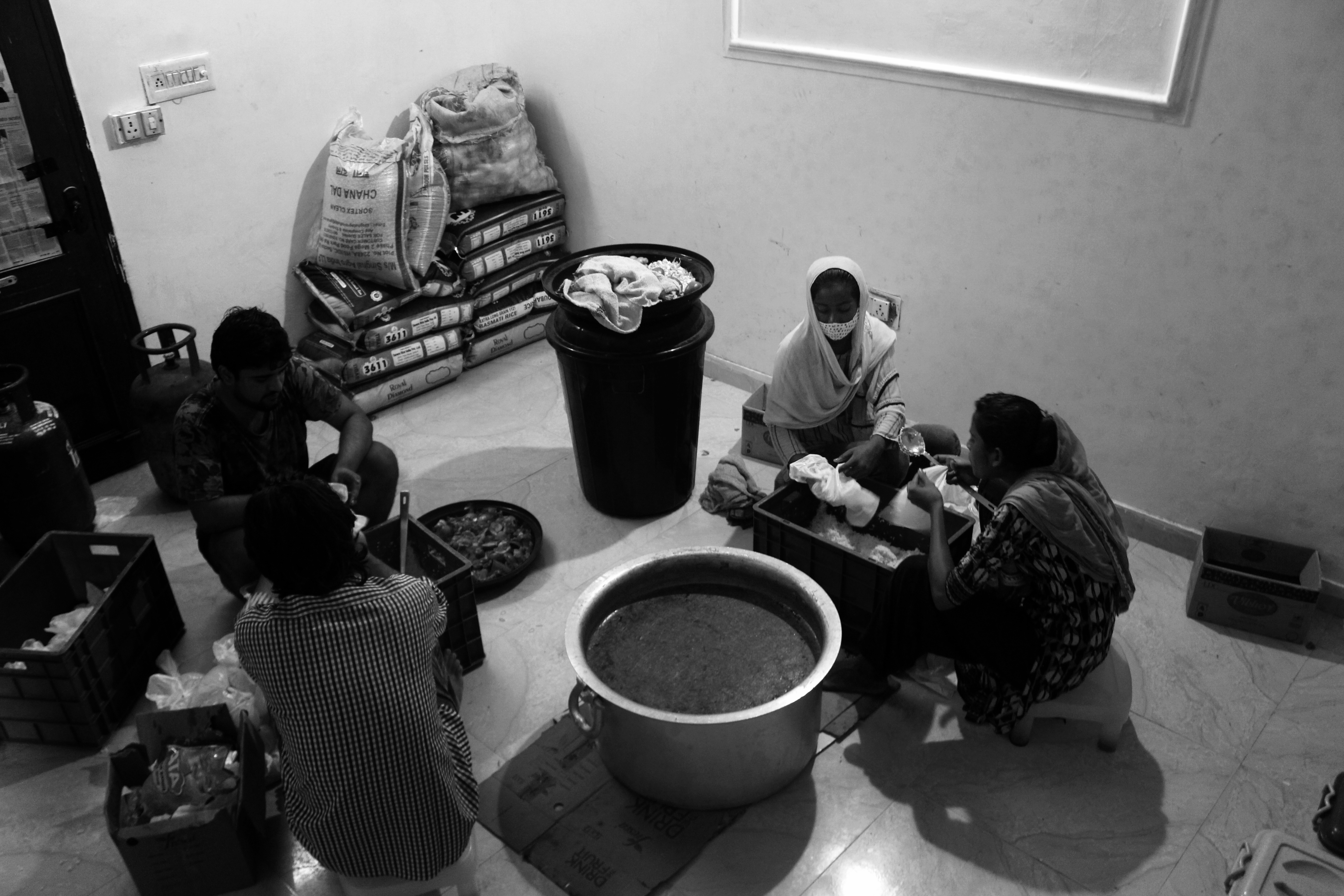 Arbab Ali and Himanshu (on the left), Alisha Parveen and Taraana (on the right) packing the meals. | Photo by Shadab Farooq[/caption]
Arbab Ali and Himanshu (on the left), Alisha Parveen and Taraana (on the right) packing the meals. | Photo by Shadab Farooq[/caption]
It's the 26th day of the community kitchen, which opened on June 18. Student Volunteers Arbab Ali, 22, and Himanshu, 23, are providing rice in packets, while community volunteers Alisha Parveen, 14, and Taraana Parveen, 18, are distributing Dal in packets.
[caption id="attachment_443313" align="aligncenter" width="2560"]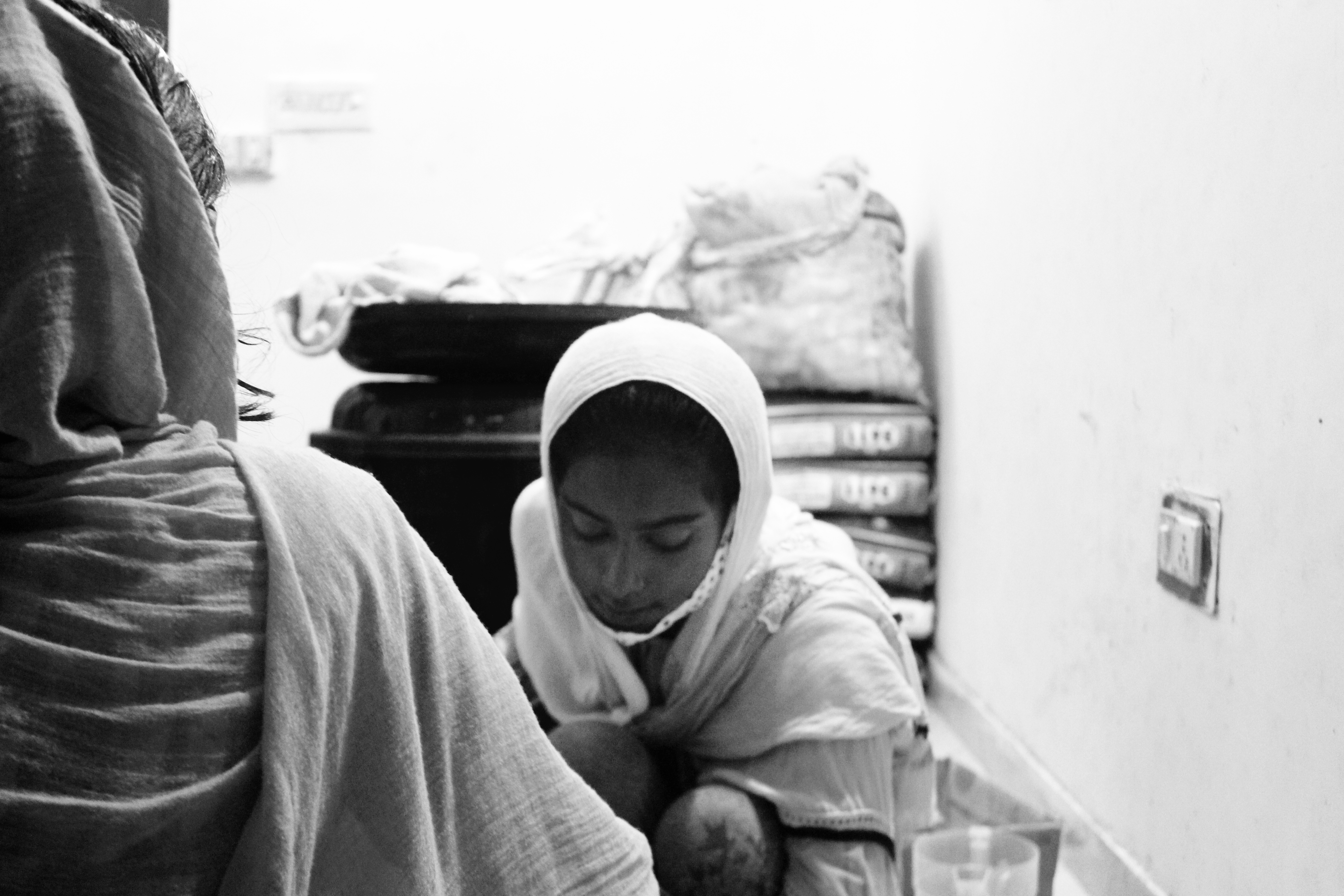 Alisha Parveen, 14, working in the community kitchen. | Photo by Shadab Farooq[/caption]
Alisha Parveen, 14, working in the community kitchen. | Photo by Shadab Farooq[/caption]
Alisha Parveen is a seventh-grade student and a dedicated volunteer who helps out in the kitchen on a daily basis. "I enjoy coming here and assisting others. I'm learning a lot here," Alisha said.
Taraana, a community volunteer, mentioned that Alisha had a fever, but she insisted on coming. "We believed the members might need assistance because it was already raining heavily."
[caption id="attachment_443314" align="aligncenter" width="2560"]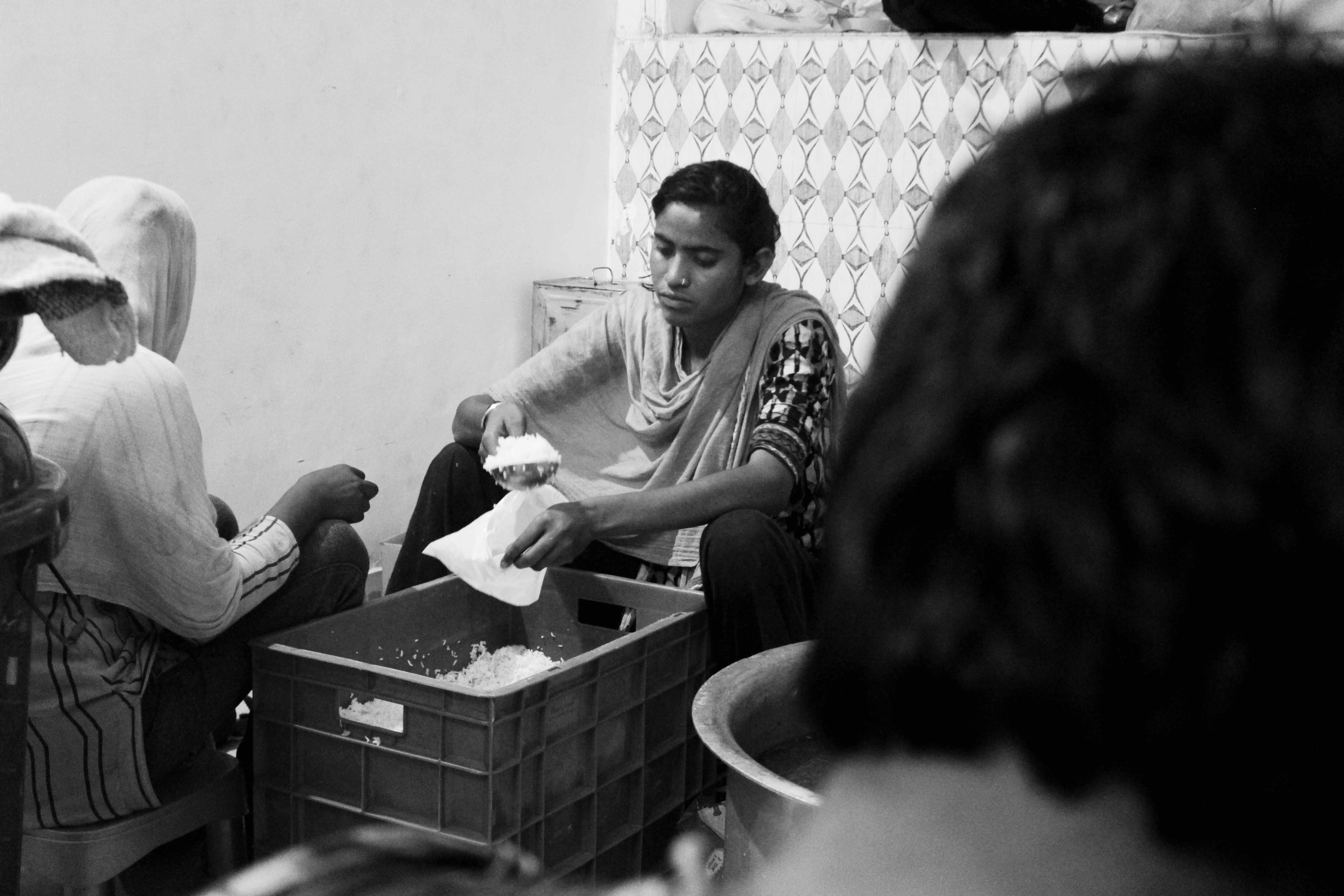 Taraana Parveen, 18, in centre, preparing rice packets. | Photo by Shadab Farooq[/caption]
Taraana Parveen, 18, in centre, preparing rice packets. | Photo by Shadab Farooq[/caption]
Alisha's home was one of the many that were demolished last year. On September 24, 2020, the Delhi Development Authority (DDA) demolished around 200 Jhuggis in a slum near the Dhobi Ghat, claiming a National Green Tribunal (NGT) ordinance prohibiting construction on river embankments.
Before the Delhi Development Authority (DDA) ordered the demolition of the Jhuggis of these residents, Dhobi Ghat was home to roughly 1,000 people, mostly construction workers, rickshaw-pullers, and domestic labourers.
[caption id="attachment_443315" align="aligncenter" width="2560"]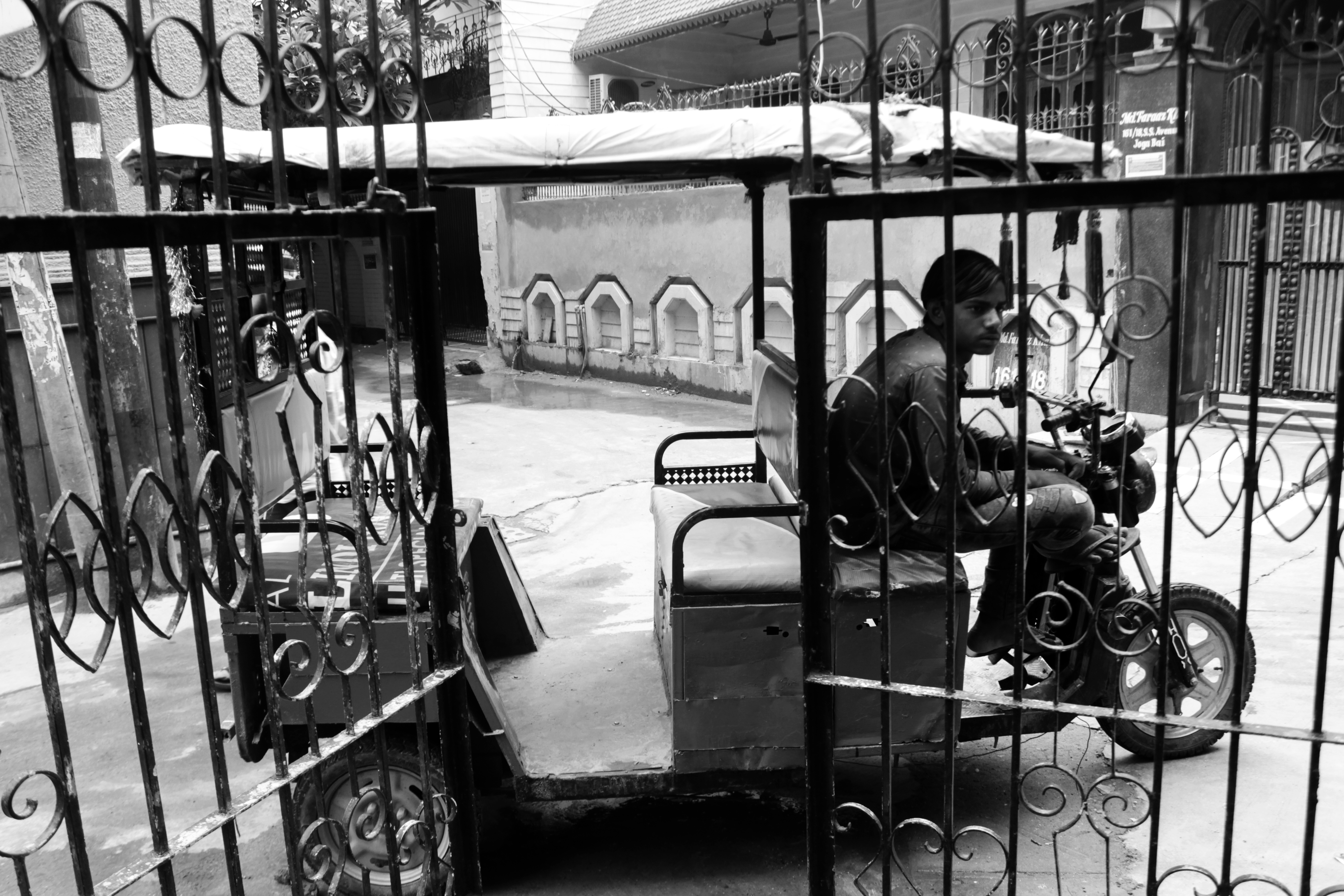 Irshad, 17, waiting outside the community kitchen. | Photo by Shadab Farooq[/caption]
Irshad, 17, waiting outside the community kitchen. | Photo by Shadab Farooq[/caption]
Irshad, 17, who drives a rented electric rickshaw daily, arrives in the afternoon to transport the food carts with other volunteers to the Dhobi Ghat Community for further distribution. "Being a part of this cause makes me joyful. Every day, these folks pay me 100 rupees," Irshad said, adding, "It's fantastic that I am earning on the side and also serving on the other."
[caption id="attachment_443316" align="aligncenter" width="2560"]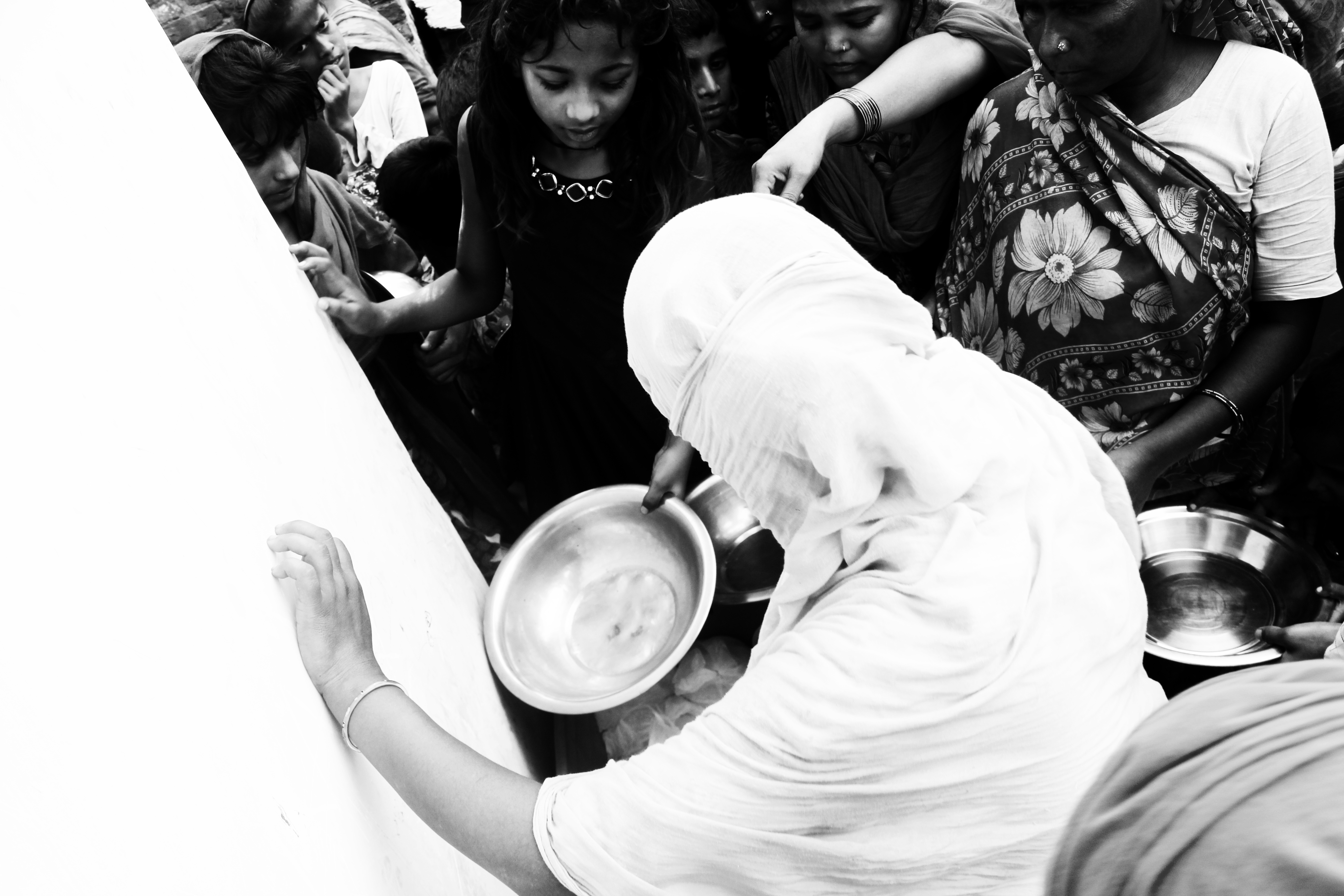 Residents of Dhobi Ghat gather around the food carts. | Photo by Shadab Farooq[/caption]
Residents of Dhobi Ghat gather around the food carts. | Photo by Shadab Farooq[/caption]
People had formed a queue to gather for food but as the E-rickshaw arrived at Dhobi Ghat, the children gathered around the food carts. Shabana Begum, 42, and Bibi Akhtari, 45, both founders of Dhobi Ghat Jhuggi Adhikar Manch, are in charge of the distribution process on the ground.
“For the residents, for us, these initiatives offer hope to those who have previously lived in awful conditions. Many people in the community had children and elderly to feed, so the kitchen's initiative contributed a lot," according to Akhtari.
[caption id="attachment_443317" align="aligncenter" width="2560"]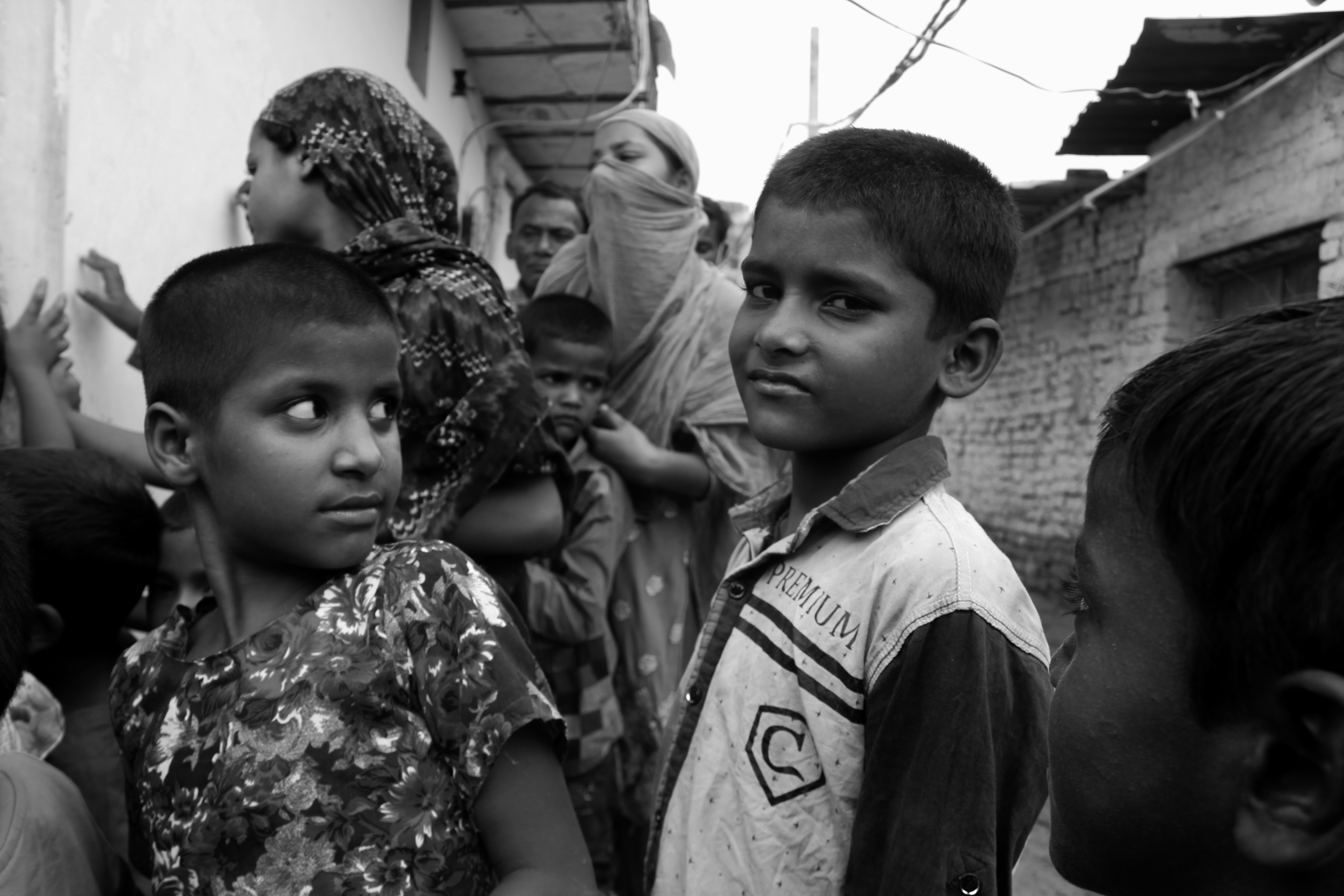 Kids of Dhobi Ghat posing for the camera while waiting in a long queue. | Photo by Shadab Farooq[/caption]
Kids of Dhobi Ghat posing for the camera while waiting in a long queue. | Photo by Shadab Farooq[/caption]
"We have not gotten any assistance from the government, despite several guarantees. We've also staged a number of protests, but our cries for help have gone unanswered," according to Shabana Begum.
[caption id="attachment_443318" align="aligncenter" width="2560"]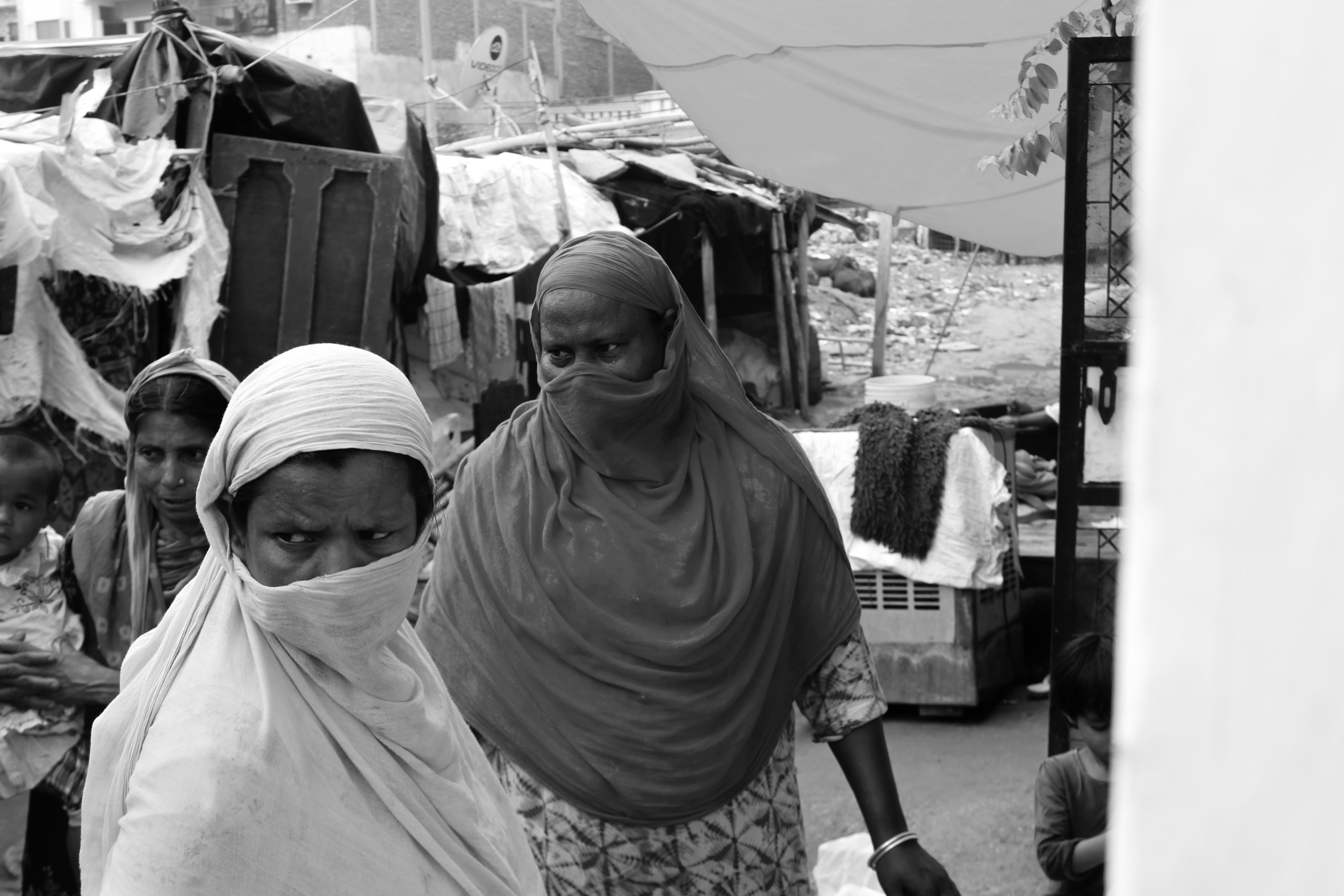 Bibi Akhtari (in white) and Shabana Begum (in black) during the food distribution. | Photo by Shadab Farooq[/caption]
Bibi Akhtari (in white) and Shabana Begum (in black) during the food distribution. | Photo by Shadab Farooq[/caption]
Nine months after the demolition, in early June, Delhi High Court remarked, "People in Dhobi Ghat cannot be left on the streets to fend for themselves after being evicted from a home they claim to have lived in for the previous two decades."
The essential arrangements must be made immediately, according to Justice Najmi Waziri, who directed the Delhi government to do so, with the DDA covering the costs.
[caption id="attachment_443319" align="aligncenter" width="2560"]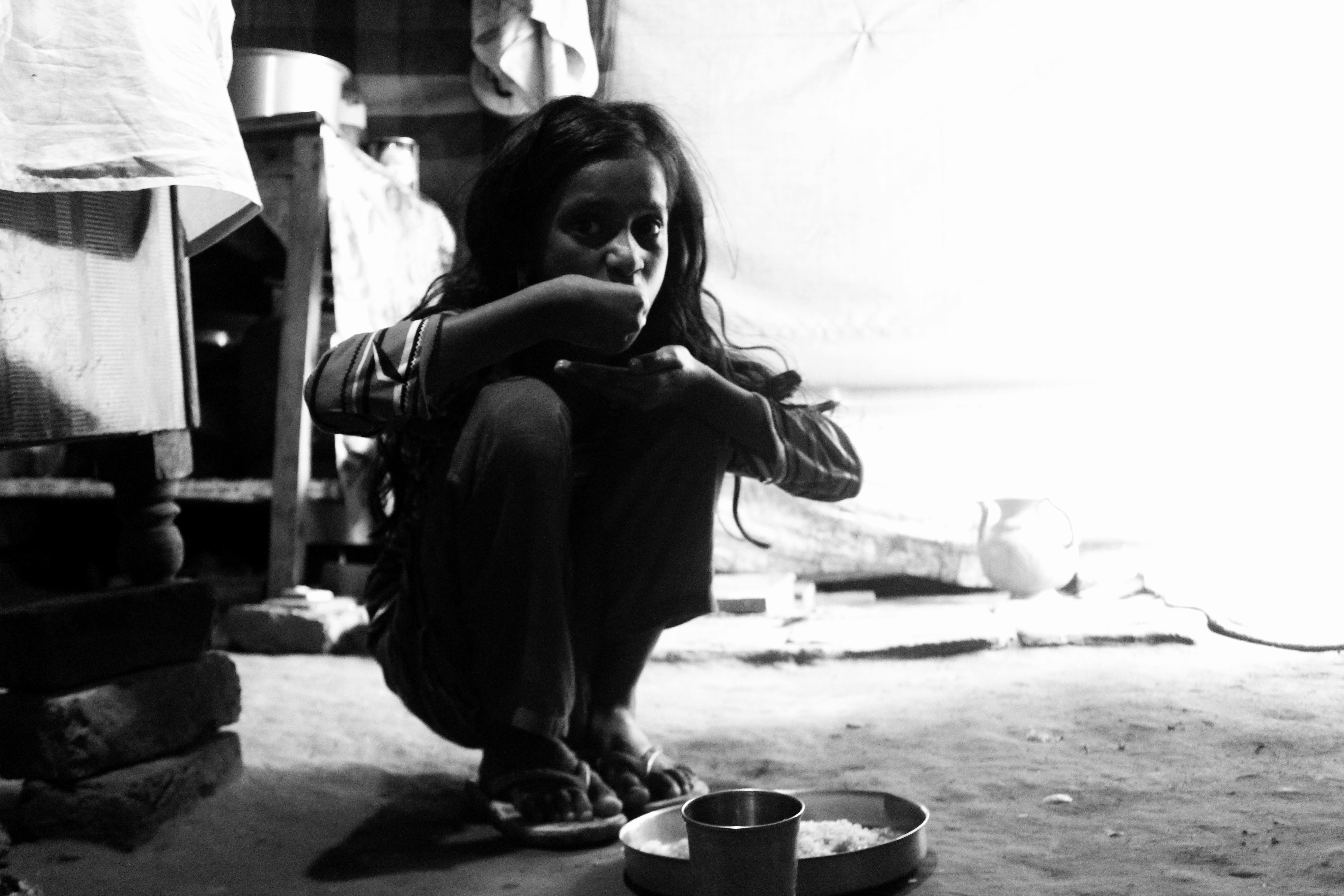 Ayesha (10), Shabana Begum's younger daughter eating the distributed food. | Photo by Shadab Farooq[/caption]
Ayesha (10), Shabana Begum's younger daughter eating the distributed food. | Photo by Shadab Farooq[/caption]
People in Dhobi Ghat, a primarily Muslim neighbourhood, were the hardest hit by the lockdown and the second wave of Covid-19. "When their homes were demolished and their expectations were dashed, they had barely begun to recoup from the financial loss. Most of the displaced families here have lost their livelihood as a result of the continuous lockdowns," Arbab Ali, one of the student volunteers, said.
[caption id="attachment_443320" align="aligncenter" width="2560"]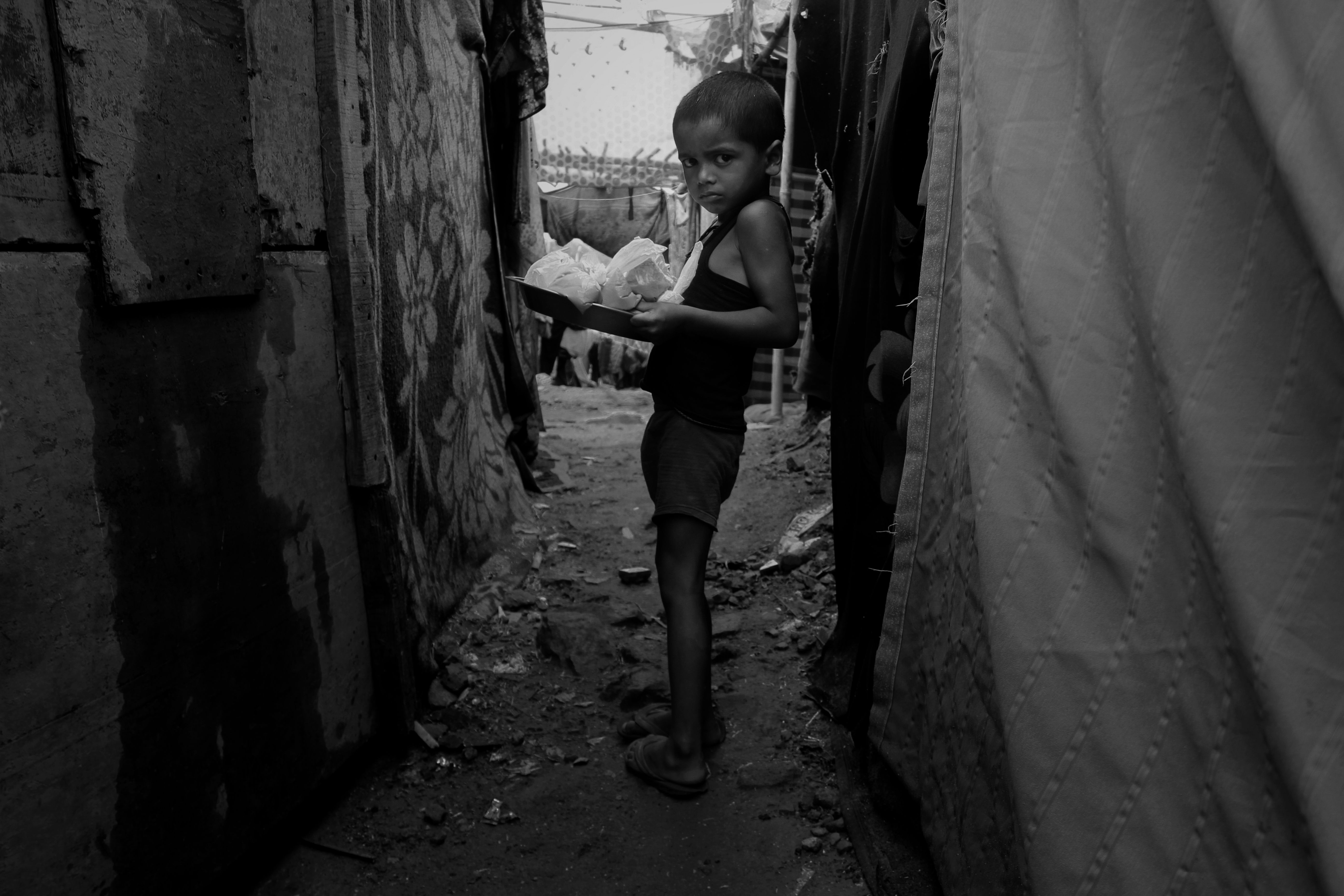 Raqeeb, 6, takes the distributed food for his family. | Photo by Shadab Farooq[/caption]
Raqeeb, 6, takes the distributed food for his family. | Photo by Shadab Farooq[/caption]
